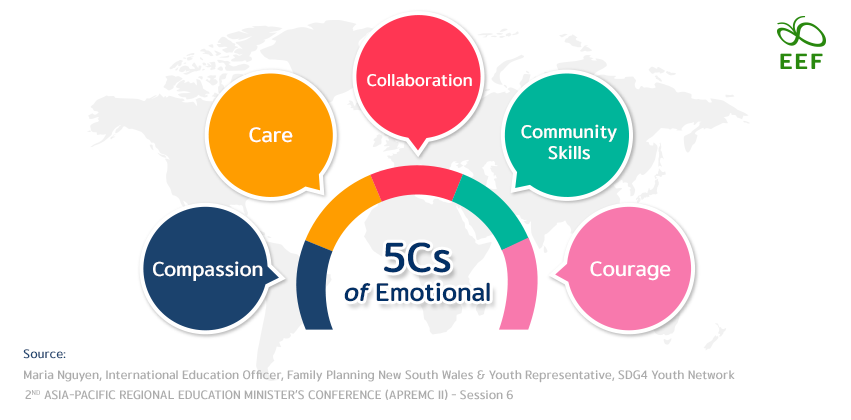
Regenerative Education is included in the fourth Sustainable Development Goals, or SDG4, as Target 4.7, which is to ensure all learners acquire knowledge and skills needed to promote sustainable development. This encompasses, among many other things, education for sustainable development and livelihood, human rights, gender equality, the promotion of a culture of peace and non-violence, and global citizenship.
However, according to research, pre-COVID, more than 30% of children — mostly those from low-income families and those with disabilities — reported experiencing bullying at school. Immigrant children and transgender children, on the other hand, often face hostile treatment at school, including bullying, discrimination, and even physical assault. This results in worsening health and well-being issues, growing inequality, and restricted access to healthcare services. During school closures, domestic violence against children is on the rise everywhere; Female children are more likely to experience social, sexual, and mental exclusion, while male children — physical punishment and bullying among many other forms of physical violence. Besides, it has also been found that female children experience more stress, anxiety, and depression during school closures than male children.
In response to the findings, Faryal Khan, program specialist for the education of UNESCO Asia and Pacific Regional Bureau for Education, commented, stating that to achieve the SDG in education, priority post-COVID should thus be given to not only health and well-being, which addresses the damage inflicted upon those of children but also promotion of sustainable development and global citizenship, which addresses the root causes of all this. And in doing so, children should serve as advocates for change in education and lifelong learning. With that being said, as added by the specialist, to enable children to feel at ease and engage in their studies, the school environment must be free from violence, bullying, and discrimination. Although laws exist that address education for change, what is written therein and what happens in schools can diverge significantly. Change must therefore be made to education itself. And such structural change, putting an end to bullying in schools, can be realized through Education for Sustainable Development, or ESD.
When schools reopen, in addition to making sure the laws truly support children, investment should be made in developing curricula conducive to fostering the 5Cs of emotional learning: Compassion, Care, Collaboration, Community Skills, and Courage. Such curricula should cover important topics, such as climate change, biodiversity, disaster risk reduction, sustainable consumption and production, and other issues following the SDGs goals, to enable children to think critically and understand their emotional and social well-being as well as the short- and long-term effects of their decisions, both locally and globally. This could ultimately lead to social change for sustainable development.

This transformation towards sustainability must begin with — or more precisely within — us. Education must empower everyone, enabling them to not only have the knowledge, skills, values, and attitudes necessary for living together, but also be flexible, analytical, respectful of diversity, environmentally conscious, and actively involved in the search for local and global solutions. This is necessary to holistically and innovatively address contemporary social, economic, and environmental problems.
Source: 2ND ASIA-PACIFIC REGIONAL EDUCATION MINISTER’S CONFERENCE (APREMC II) – Session 6

